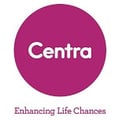Volunteer volunteer roles in Lisbon, lisbon
Actively Interviewing
This organisation is scheduling interviews as applications come in. They're ready to hire as soon as they find the right person. Don't miss your opportunity, apply now!
Join Our Team – Become a Till Volunteer for Acorns Children’s Hospice at Chelmsley Wood Superstore!
Do you enjoy meeting people, working in a friendly team, and making a real difference in your community?
We’re looking for enthusiastic Till Volunteers to support our charity shops, helping to raise vital funds for Acorns Children’s Hospice.
What you’ll be doing:
- Serving customers with a smile
- Handling cash and card payments at the till
- Providing great customer service
- Supporting our shop team in creating a welcoming atmosphere
What you’ll gain:
- The chance to meet new people and be part of a supportive team
- Learn valuable retail and customer service skills
- Make a meaningful impact – every purchase helps us care for local children and families
Whether you can spare a few hours a week or more, your time will help us continue providing essential care and support.
Interested? Pop into your local Acorns shop at Chelmsley Wood or visit our website to find out how to apply.
Together, we can make every day count for the children and families who need us most.
Actively Interviewing
This organisation is scheduling interviews as applications come in. They're ready to hire as soon as they find the right person. Don't miss your opportunity, apply now!
We appreciate any volunteering help that you can offer YBTC and want to make sure that our
volunteers have a positive experience with us. We pledge to support you as much as we can.
We want to ensure that volunteering with us does not feel too daunting, so the exact tasks might
vary depending on your circumstances. However, some typical tasks may include:
· Asking people you know who might be willing to have a collection box in their business
· Approaching local businesses to display the boxes and collect loose change from their customers
· Building and maintaining relationships with your box holders to inspire loyalty and encourage people to continue giving year after year
· Collecting the boxes in your area as and when required and taking to your YBTC contact
We are looking for people who are:
· Have a warm, friendly and confident outlook
· Willing to learn about the work of YBTC
· Able to communicate with a range of different groups
· Are creative and imaginative – spotting opportunities to boost your distribution
· Are well organised and enjoy meeting new people
· Reliable and able to commit to agreed requirements
We can offer you:
· Induction and ongoing training
· Ongoing support and supervision in your role
· The opportunity to learn new skills
· YBTC commitment to health and safety
Founded in 2003 and originally named Andrea’s Gift and later Brain Tumour Research and Support
Across Yorkshire, Yorkshire’s Brain Tumour Charity (YBTC) is Yorkshire and Humber’s leading
brain tumour charity. Offering practical, financial and emotional support to both adult and child
brain tumour patients, together with their families.
We fund brain tumour research in Yorkshire; we hope this research, dedicated to identifying new
approaches to the discovery and treatment of brain tumours, will improve outcomes for patients.
At YBTC we are a small team who are growing to meet the needs of those affected by a brain
tumour in Yorkshire. Around 15 new cases of primary brain tumour are diagnosed in the region
every week.
Our charity values are Integrity, Compassion, Community, & Ambition.
Our Vision/Mission
To improve the lives of people impacted by a brain tumour in Yorkshire, through local support and
research.
To improve the lives of people impacted by a brain tumour in Yorkshire, through local support and research.



The client requests no contact from agencies or media sales.
Actively Interviewing
This organisation is scheduling interviews as applications come in. They're ready to hire as soon as they find the right person. Don't miss your opportunity, apply now!
Cornwall Humanists bring non-religious people together to be happier and more fulfilled and to be a force for good in our community.
We are a Local Group of Humanists UK. All Humanists UK members and supporters in the local area are automatically part of the group.
Cornwall Humanists aim to provide a range of activities for non-religious people living in Cornwall to meet, socialise, campaign, raise awareness of humanism, participate in local civic life and support each other. The Local Group represents Humanists UK and the local humanist community at public events and in public forums. Cornwall Humanists is led by a team of volunteers that organises events and activities throughout the year.
We are seeking a dedicated and driven Events Lead to join our Committee, to assist in delivering the activities of Cornwall Humanists.
Take a look at the full role description and person specification here to help you decide whether the role is right for you, including what you would get out of the role and what we expect you would bring to the role.
Whatever your background, or prior experiences, if you’re passionate about creating an inclusive, effective humanist community in Cornwall, we’d love to hear from you.
We actively encourage applications from all sections of our community. We particularly welcome applicants from groups currently under-represented among section volunteers and leaders; these would include individuals who identify as female, disabled, trans or from the global majority.
At Humanists UK, our dream is of a tolerant world where rational thinking and kindness prevail.
The client requests no contact from agencies or media sales.
Actively Interviewing
This organisation is scheduling interviews as applications come in. They're ready to hire as soon as they find the right person. Don't miss your opportunity, apply now!
Join the Ranger Cadets as a Uniformed Volunteer Officer!
Step into a role of leadership, legacy, and community impact.
We are seeking Cadet Unit Managers (Officers in Charge) to lead weekly cadet units across England.
About Ranger Cadets:
Ranger Cadets is a new uniformed youth work organisation with a clear purpose: to equip young people with essential life skills, tools, and opportunities that help them grow into active citizens who make a positive contribution to society. Through training, service, and ceremonial identity, cadets gain confidence, resilience, and pride—while building a legacy of community impact.
Your Mission:
-
Lead with pride: Manage a cadet unit one evening per week.
-
Serve with honour: Support occasional weekend public duties, representing the Ranger Cadets in your community in uniform.
-
Inspire the next generation: Guide young people through training, service, and ceremonial events.
Your Path to Advancement:
After 12 months of service, you’ll have the opportunity to rise in rank to Multi-Cadet Unit Manager, taking command of two or more cadet units—expanding your leadership and impact.
Why Volunteer with Ranger Cadets?
-
Be part of a uniformed tradition that blends discipline with community pride.
-
Gain leadership experience and ceremonial training.
-
Make a lasting difference in the lives of young people.
-
Join a movement that values honour, service, and legacy.
Call to Action:
If you’re ready to wear the uniform, lead with dignity, and inspire the future, step forward today. Become a Ranger Cadet Officer—your journey starts here.
RANGER CADETS
#PreparedForLife
To empower young people through structured, uniformed experiences that build life skills, leadership, teamwork, and a strong sense of community.

The client requests no contact from agencies or media sales.
Actively Interviewing
This organisation is scheduling interviews as applications come in. They're ready to hire as soon as they find the right person. Don't miss your opportunity, apply now!
Maldon Humanists bring non-religious people together to be happier and more fulfilled and to be a force for good in our community.
We are a Local Group of Humanists UK. All Humanists UK members and supporters in the local area are automatically part of the group.
Maldon Humanists aim to provide a range of activities for non-religious people living in and around Maldon to meet, socialise, campaign, raise awareness of humanism, participate in local civic life and support each other. The Local Group represents Humanists UK and the local humanist community at public events and in public forums. Maldon Humanists is led by a team of volunteers that organises events and activities throughout the year.
We are seeking a dedicated and driven Events Lead to join our Committee, to assist in delivering the activities of Maldon Humanists.
Take a look at the full role description and person specification here to help you decide whether the role is right for you, including what you would get out of the role and what we expect you would bring to the role.
Whatever your background, or prior experiences, if you’re passionate about creating an inclusive, effective humanist community in and around Maldon, we’d love to hear from you.
We actively encourage applications from all sections of our community. We particularly welcome applicants from groups currently under-represented among section volunteers and leaders; these would include individuals who identify as female, disabled, trans or from the global majority.
At Humanists UK, our dream is of a tolerant world where rational thinking and kindness prevail.
The client requests no contact from agencies or media sales.
Actively Interviewing
This organisation is scheduling interviews as applications come in. They're ready to hire as soon as they find the right person. Don't miss your opportunity, apply now!
See inside our Collections storage facility - closed to the public - and help us prepare to move our collection to a new facility
What is an Inventory volunteer?
The RAF Museum has many items in its collection which are not currently on display. Our inventory volunteers will ensure that we have an up-to-date record of all the items in our reserve collection, their purpose and condition, to help us prepare to move from our current store outside Stafford to a new storage facility in Cosford. This is a weekday only opportunity.
This role sits within the RAF Museum’s Midlands Development Programme which will transform our museum and our impact on the local community through a series of phased projects – engaging audiences who may not obviously identify with the RAF story by finding common interests and histories which link them. As part of this project, we are planning a new learning centre, outdoor spaces, collections hub and major exhibition.
What will I be doing?
The Inventory Volunteer role could encompass various tasks, which might include:
· Assessing objects’ condition
· Measuring and weighing items
· Undertaking cleaning as required
· Object photography
This role is perfect for you if you…
· Are curious and eager to learn
· Pay attention to detail
· Have a light and careful touch
· Are happy working as part of a team
· Are organised and able to keep accurate records
How much time would I need to commit?
Ideally a half day (09:00 to 12:00 or 13:00 to 16:00) once a week, although other arrangements can be considered on a case-by-case basis. We would ask that volunteers commit to a minimum of 20 volunteering sessions. This is a weekdays only opportunity.
What's in it for me?
· Becoming part of a great team of volunteers and staff
· See and handle objects from the RAF Museum’s collection not on public display
· Learn about object conservation
· Discover more about the history of the RAF
· Gain behind-the-scenes experience within the heritage sector
· 25% discount at our retail outlets and café[KS1]
· Travel expenses reimbursed up to £14.50 per day, in line with our policy
· Free entry to a wide range of museums and heritage sites across the UK.
The client requests no contact from agencies or media sales.
Actively Interviewing
This organisation is scheduling interviews as applications come in. They're ready to hire as soon as they find the right person. Don't miss your opportunity, apply now!
Enthusiastic, reliable and compassionate volunteers with good interpersonal skills and a desire to help others. Confident working with young people between the ages of 16 - 24.
To provide social and practical support to customers. Helping towards improving the life chances of people with experience of homelessness.
Clarion Housing Group operate a number of supported housing schemes, to support people to live independently, by providing residents with the life skills they will need to eventually go on to their own tenancy.
This opportunity is based in Strood, Rochester and Gillingham (Medway).
Volunteers empower our customers to identify their existing strengths and skills so they can achieve their goals and aspirations. As a volunteer, you can support customers to achieve their full potential by developing new skills and accessing opportunities.
Activities:
-Building an empathic and person-centred relationship with a young person who may be socially isolated or lack confidence.
-Provide opportunities for young people to become more self-confident, maintain contact with important people in their lives and build-up their social networks.
Practical activities could also include:
-Empowering young people to develop independent living skills and to access educational and employment opportunities
-Helping the young people to complete forms and paperwork including developing their CV and job applications
-Helping the young people to build important life skills e.g. cooking, cleaning and budgeting
-Organising activities within the schemes i.e. art/painting, games/quizzes, cooking
Support for Volunteers:
- To attend four half days of training, receive an induction and have access to any other relevant in house and external training
- Reasonable travel expenses will be reimbursed
- Volunteers will have a check in with the Volunteering Officer every 3 months to ensure they are happy with the role and to resolve any issues
Actively Interviewing
This organisation is scheduling interviews as applications come in. They're ready to hire as soon as they find the right person. Don't miss your opportunity, apply now!
Role Overview
As a Volunteer DevOps Engineer at GHRI, you will support the backbone of our digital health systems. You’ll help build and automate infrastructures that make our telemedicine services stable, secure, and scalable.
Perfect for students, early-career DevOps talents, or tech enthusiasts looking to gain real-world experience while contributing to a meaningful global cause.
Key Responsibilities
Assist in deploying and maintaining cloud infrastructure (AWS, Azure, or GCP).
Support CI/CD pipeline setup, testing, and automation.
Monitor system performance and ensure uptime for GHRI platforms.
Collaborate with engineers to improve system reliability, speed, and security.
Handle basic security, backups, and documentation.
Help troubleshoot infrastructure issues and optimize workflows.
---
Requirements
Basic understanding of cloud services (AWS/GCP/Azure).
Familiarity with Linux environments.
Knowledge of CI/CD tools (GitHub Actions, GitLab CI, Jenkins).
Experience with Docker or Kubernetes is a bonus.
Good communication, eagerness to learn, and a problem-solving mindset.
Interest in digital health, telemedicine, or humanitarian technology.
What You’ll Gain
Hands-on DevOps experience on real digital health projects.
Mentorship from industry and tech experts.
Flexible hours that work with your schedule.
Certificate of Volunteer Service from GHRI.
Projects that significantly boost your resume and portfolio.
A chance to contribute to life-changing healthcare innovation.
How to Apply
Send your CV
Use the subject line:
“Volunteer DevOps Engineer – GHRI”
Our mission is to deliver affordable, quality healthcare to underserved communities via telemedicine, hospital links & humanitarian aid.

Using Anonymous Recruitment
This organisation is using Anonymous Recruitment to reduce bias in the first stages of the hiring process. Submit your application as normal and our system will anonymise it for you. Your personal information will be hidden until the recruiter contacts you.
Actively Interviewing
This organisation is scheduling interviews as applications come in. They're ready to hire as soon as they find the right person. Don't miss your opportunity, apply now!
This is an opportunity to use your expertise and skills in website development and social media presentation to make a difference to the arts in Ukraine. Our charity is focused on projects within Ukraine to support the future of dance there. This volunteer role will play a key role in fundraising and communications in support of this work.
Responsibilities:
Website:
- Developing and maintaining website (currently Wix)
- SEO and analytics
Social media:
- Technical support for development of presence on Instagram, Facebook
- Support for Fundraising and Communications Manager in development of presentation
Technical oversight:
- Ensure and advise on security
- Ensure data protection compliance
- Advise on development of technical support for administration of the charity
Key Skills / Attributes:
- Strong interest in volunteering within the arts in the third sector
- Strong experience of website development and maintenance
- Knowledge of JavaScript, SQL useful
- Experience in use of social media for corporate communications
Likely to have had 3 years plus relevant professional experience supporting corporate communications or marketing or similar disciplines.
Our charity promotes dance and performance arts. Given the continuing conflict our current focus is exclusively on our projects in Ukraine.
Suffolk Mind has an exciting opportunity for new volunteers to join our board of trustees, and to help make a positive impact within the mental health sector.
About Us
Suffolk Mind is a local mental health charity. More than one in four of us will experience a mental health challenge each year. At Suffolk Mind, our mission is to make Suffolk the best place in the world for talking about and taking care of mental health.
Suffolk Mind works across the mental health continuum, providing services, support and information for everyone.
We offer a range of services including anxiety management courses, counselling, Waves, supported housing, GreenCare, Suffolk Work Well, workplace wellbeing training, and schools and family services. At Suffolk Mind we want to help people make a life that works.
Role
We are looking for passionate and committed people who have a genuine desire to help us achieve our mission.
Trustee responsibilities are wide and varied and include:
- Ensuring the charity is compliant with relevant legislation and is adequately resourced
- Contributing actively by giving strategic direction to the organisation, setting overall policy, defining goals and evaluating performance
- Ensuring the effective and efficient management and administration of the charity
- Ensuring the financial stability of the charity and proper investment of the charity’s funds
- Using any specific knowledge or experience you have to help the Board of Trustees reach sound decisions
Trustees are required to:
- Attend up to four board meetings a year
- Attend our annual Away Day and represent the charity at external events
- Act as an ambassador for Suffolk Mind
- Attend and participate in training as and when required.
No specific qualifications are required but you should have relevant expertise or experience which will enable you to make a positive contribution to the work of the Board.
At Suffolk Mind, we are dedicated to fostering an inclusive environment where people of all backgrounds, identities, and abilities feel valued, respected, and empowered to contribute their best. Therefore, we welcome applications from individuals of all backgrounds, particularly those from underrepresented groups, including people from ethnic minority backgrounds, LGBTQ+ communities, and those with lived experience.
Trustees are given full support, a comprehensive induction programme and training opportunities. Reasonable expenses are reimbursed.
The client requests no contact from agencies or media sales.
Actively Interviewing
This organisation is scheduling interviews as applications come in. They're ready to hire as soon as they find the right person. Don't miss your opportunity, apply now!
The difference you will make to cats and people
As a trap, neuter and return (TNR) lead volunteer you will make a vital contribution to maintaining a healthy population of feral and community cats and will help alleviate cat welfare and community problems caused by uncontrolled cat populations. You will lead a team of TNR volunteers in your local area, who in turn will help reduce the number of unwanted cats.
You can expect us to
- Make you feel welcome, included and respected in line with our values and behaviours
- Support you in having a positive and impactful experience at Cats Protection
- Cover agreed out-of-pocket expenses in line with our Expenses Policy
- Provide you with access to learning, development and engagement opportunities
What we need from you
You’ll be:
- Supporting and managing a team of TNR volunteers
- Promoting and encouraging appropriate training for TNR volunteers
- Delegating activities to TNR volunteers
- Supporting TNR volunteers to comply with Cats Protection policies and guidelines
- Engaging with local communities, local businesses, landowners and farmers to promote the neutering of cats in their locality
- Engaging with vets to promote and arrange neutering
- Liaising with other members of the Cats Protection local team
- Making sure the trapping equipment is working properly
Making a better life for cats, because life is better with cats


Are you looking for a meaningful, flexible way to support others? Join the Talking Bubble Project and help tackle loneliness through the power of a simple phone call.
Since the pandemic, many befriending services have wound down—but Talking Bubble remains one of the few projects still offering regular, phone-based companionship to those who need it most. Demand for this kind of support remains high, and we’re actively looking for kind, compassionate English-speaking volunteers to help meet this growing need.
What is the Talking Bubble Project?
☎︎ It’s a phone-based befriending service that connects volunteers with older adults and vulnerable individuals across the UK who are experiencing loneliness and social isolation. By committing just a little time each week, you can offer someone the warmth of conversation and a regular point of connection.
Why Volunteer With Us?
✔ Make a genuine impact on someone's life
✔ Enjoy flexible volunteering hours from the comfort of your home
✔ Receive full training, ongoing support, and a reference upon completion
✔ Boost your sense of purpose and community
What You’ll Need
✅ No experience required—just a kind heart, a listening ear, and a willingness to talk
✅ Volunteers must complete Safeguarding Adults Level 2 training and undergo a DBS check—we cover the cost of both
✅ Must be a UK resident
How to Get Involved
Apply now via the CharityJob website, or contact us directly for more information. Together, we can keep connection alive—one call at a time.
The client requests no contact from agencies or media sales.
Actively Interviewing
This organisation is scheduling interviews as applications come in. They're ready to hire as soon as they find the right person. Don't miss your opportunity, apply now!
Dignify delivers educational workshops in schools to promote healthy relationships, self-respect, and respect for others. We work to prevent the harmful effects of pornography and challenge the normalisation of unhealthy sexual behaviours among young people. Through evidence-based sessions, we equip students with knowledge, empathy, and tools to navigate relationships positively.
Role Purpose
We are seeking Volunteer Schools Workers to accompany our lead Schools Worker in delivering workshops to children and young people. You’ll help create a safe, positive environment for learning, support classroom activities, and be an encouraging presence for students as they explore important topics around respect, relationships, and digital culture.
Key Responsibilities
· Accompany the lead Schools Worker to sessions in primary and secondary schools.
· Assist with setting up and packing away resources and equipment.
· Helping facilitate and monitoring small group sessions
· Observe and note student engagement to help evaluate sessions.
Skills / Abilities / Experience / Qualities
· Strong communication skills, especially with young people.
· Willingness to work with young people from diverse backgrounds and gender identities.
· Comfortable discussing sensitive topics such as pornography, sexual harassment, and objectification.
· Calm, approachable manner that helps young people feel at ease.
· Openness to learning and developing new skills.
· Ability to build respectful, professional relationships with young people, staff, and colleagues.
· Good rapport with people of all ages and abilities.
· Commitment to confidentiality.
· Reliable timekeeping and punctuality for all sessions.
Training / Support
· A full induction to the service will be provided
· You will be required to undertake mandatory e-learning and a menu of optional training will be made available
· Ongoing supervision and support from your line manager
· Travel expenses reimbursed (if applicable).
· Access to events, networking, and training and development opportunities.
Additional Information
· You will be required to undergo an enhanced DBS check
· We will require 2 x references
· You will be required to dress in an appropriate manner when accompanying the team to sessions (school smart)
One YMCA's mission is to create supportive and energizing communities where young people can belong, contribute, and thrive.
The client requests no contact from agencies or media sales.
Actively Interviewing
This organisation is scheduling interviews as applications come in. They're ready to hire as soon as they find the right person. Don't miss your opportunity, apply now!
Enthusiastic, reliable and compassionate volunteers with good interpersonal skills and a desire to help others. Confident working with young people between the ages of 16 - 24.
To provide social and practical support to customers. Helping towards improving the life chances of people with experience of homelessness.
Clarion Housing Group operate a number of supported housing schemes, to support people to live independently, by providing residents with the life skills they will need to eventually go on to their own tenancy.
This opportunity is based in Strood, Rochester and Gillingham (Medway).
Volunteers empower our customers to identify their existing strengths and skills so they can achieve their goals and aspirations. As a volunteer, you can support customers to achieve their full potential by developing new skills and accessing opportunities.
Activities:
-Building an empathic and person-centred relationship with a young person who may be socially isolated or lack confidence.
-Provide opportunities for young people to become more self-confident, maintain contact with important people in their lives and build-up their social networks.
Practical activities could also include:
-Empowering young people to develop independent living skills and to access educational and employment opportunities
-Helping the young people to complete forms and paperwork including developing their CV and job applications
-Helping the young people to build important life skills e.g. cooking, cleaning and budgeting
-Organising activities within the schemes i.e. art/painting, games/quizzes, cooking
Support for Volunteers:
- To attend four half days of training, receive an induction and have access to any other relevant in house and external training
- Reasonable travel expenses will be reimbursed
- Volunteers will have a check in with the Volunteering Officer every 3 months to ensure they are happy with the role and to resolve any issues
Actively Interviewing
This organisation is scheduling interviews as applications come in. They're ready to hire as soon as they find the right person. Don't miss your opportunity, apply now!
No one should die because they needed first aid and didn’t get it. St John Ambulance teaches people first aid so they can be the difference between life and death, and you can help us do this.
As Unit Manager you will be responsible for the overall management of your St John Ambulance Youth unit. You will do this by leading weekly meetings, organising other youth development activities and actively participating in the recruitment, training and retention of the young people and volunteers in your unit. You will ensure that they have a positive and rewarding experience in St John Ambulance, by equipping them with the necessary skills to fulfil our vision; ‘Everyone who needs it should receive first aid from those around them. No one should suffer for the lack of trained first aiders.’
This role is ideal for someone who has some management experience and wants to enhance their skills while doing invaluable work. This role is exempt from the provisions of the Rehabilitations Offenders Act.
Our Wymondham Cadet Unit will meet for 2 hrs on a weekday evening, every week during term times. Usually between the hours between 6-9pm, being a new unit, the team will be able to discuss day/time when in place. Please outline your availability in your application form
To apply for this opportunity please follow the link below:











